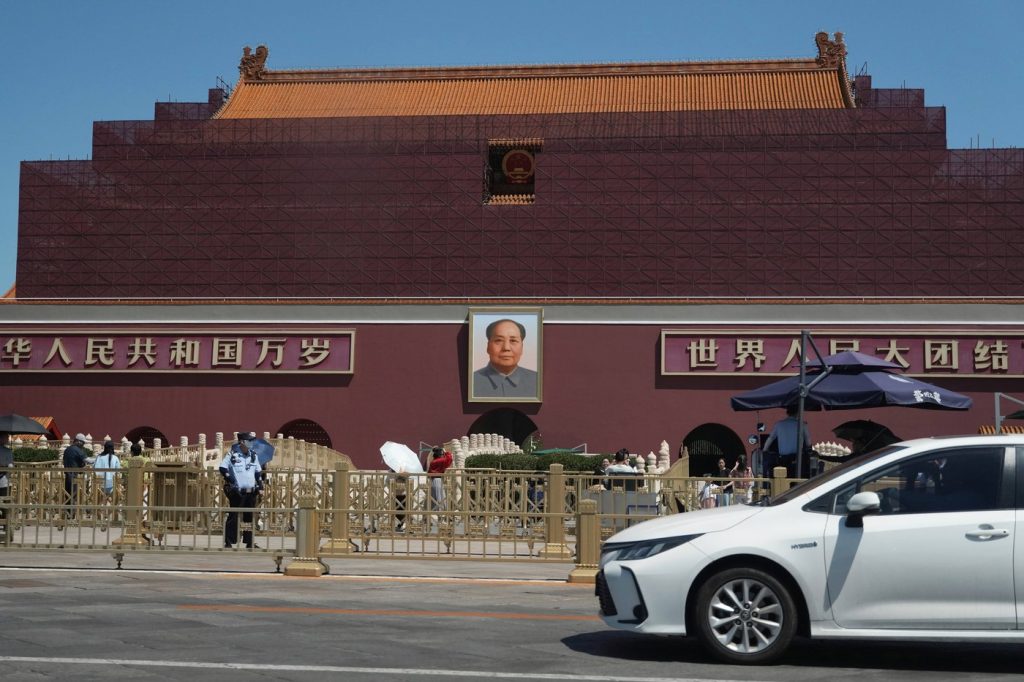BEIJING (AP) - The 36th anniversary of the tragic Tiananmen Square crackdown, which marked the end of pro-democracy protests in 1989, went largely unnoticed by the majority of the Chinese population, in accordance with the intent of the ruling Communist Party. Security measures were heightened around Tiananmen Square in Beijing, the epicenter of the protests, where the military, under the leadership of Deng Xiaoping, violently suppressed demonstrators during the night of June 3-4. Soldiers were deployed with live ammunition, resulting in the deaths of hundreds, if not thousands, of civilians, alongside numerous military casualties.
The Communist Party has actively sought to erase the memory of the events of June 4, 1989, labeling it as "political turmoil." It enforces strict regulations banning public commemorations and references to the crackdown, meticulously removing mentions from the internet. In recent years, restrictions have expanded to Hong Kong, where previous mass gatherings for candlelight vigils have been suppressed. For instance, Chan Kim-kam, a former district council member, faced questioning from customs officials after advertising white candles for sale on social media in a post titled "June, we don’t forget."
Only in Taiwan, which operates independently despite China's claims, have large gatherings commemorating June 4 continued to take place. The crackdown has been pivotal in solidifying Communist Party control over the country. Tiananmen Square itself, a significant historical site adorned with monumental buildings from the communist era and Mao Zedong's mausoleum, became a focal point for university students advocating for freedom and reform during the spring of 1989. This unrest ultimately split the party leadership, leading to the military's decisive intervention, a moment that shaped China's subsequent political landscape while maintaining strict control over governance even as the economy was liberalized.
Chinese officials often tout the nation's rapid economic growth since the crackdown as validation of their historical decisions. However, the Tiananmen Mothers, a group of victims' relatives, contests this view. In their continued effort for justice, they issued an online appeal to the government, signed by 108 members, demanding an independent investigation into the events of June 4, a comprehensive list of the deceased, compensation for the victims’ families, and accountability for those responsible for the killings.
To mark the anniversary, the Canadian and German Embassies in Beijing displayed an image of a candle on large screens visible from the street. Meanwhile, in Hong Kong, a festival showcasing Chinese cuisine and products took place at Victoria Park, a location that once hosted large candlelight vigils for the June 4 anniversary. Following the COVID-19 pandemic, Hong Kong authorities have effectively silenced public remembrances of the event, escalating their campaign against dissent initiated in response to the 2019 anti-government protests.
"Hong Kongers have become silent lambs after 2019," lamented King Ng, who was present at the park on the anniversary. Jailed vigil organizer Chow Hang-tung declared her intention to undertake a 36-hour hunger strike to honor the victims of the crackdown. The British and Canadian consulates expressed their sentiments about not overlooking the significance of June 4 through social media endorsements, while the American consulate echoed U.S. Secretary of State Marco Rubio’s remarks highlighting the Communist Party's censorship of historical facts.
Taiwan’s President Lai Ching-te, utilizing the anniversary as a platform, distinguished the democratic governance of Taiwan from China’s authoritarian rule, reinforcing the importance of preserving historical truths. He remarked that while authoritarian regimes often choose silence about their histories, democratic societies actively remember and honor those who stood for human rights.
As the anniversary concluded, a commemoration and candlelight vigil were organized to remember the events of June 4, reflecting the ongoing struggle for remembrance and justice surrounding one of modern China’s most pivotal and tragic moments.











